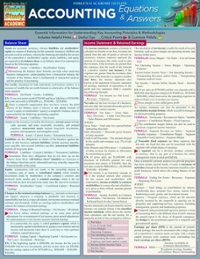Discuss the appointment of Tan Sri Adam Shafiq as the new CEO. Include three argumentations concerning good corporate practise in your discussion.
CONFIDENTIAL 2 AC/JUL 2021/MAF671 QUESTION 1 AirStar is a domestic airline that operates both short- and long-haul flights. The company's mission is "to bring humanity back to air travel" and become Malaysia's favourite airline. AirStar is positioned as a low-fare alternative, offering its customers a differentiated flying experience on point-to-point routes. As customers' first choice airline, AirStar was known for its excellent customer service, new aircraft, greater comfort (more expansive legroom), and endless entertainment through free LiveTV. With virtually no incidences of passengers being denied boarding: high completion factors (99.6 percent as compared to 98.3 percent at other major airlines); the lowest incidence of delayed, mishandled, or lost bags; and the third-lowest number of customer complaints, the company indeed set high standards for low-cost operations in the industry. The company was voted the best domestic airline in the Asia Traveler's Readers' Choice Awards for three consecutive years. As AirStar grew, it made some changes. In February 2013, AirStar joined an alliance with SkyJet, a British airline company, to facilitate easy transfers for both airlines' customers. However, high fuel prices, the competitive pricing environment, and other cost increases made it increasingly challenging to fund AirStar's growth. For instance, AirStar introduced a new type of aircraft, which complicated its maintenance operation, adding to its costs. In 2015, AirStar suffered its first losses since its Initial Public Offering in 2005. Losses continued for five consecutive years until 2020. A disastrous storm in July 2018 that caused a flight crashed exposed many weaknesses in AirStar's operations and harmed the airlines' reputation and financial performance. Founder and CEO Datuk Igram Rahman had made a public apology and published AirStar's Customer Bill of Rights in an attempt to restore customer confidence. The CEO had to pay attention to costs and reduce capital expenditures in new airplanes. Still, in 2020 he initiated moves to update the Airbus fleet and purchase new aircraft as the airline continued to add routes. By 2020, AirStar's low-fare business model was being threatened as its costs continued to go up. The problem was amplified further by the outbreak of COVID-19 pandemic in the same year, resulting in a significant drop in air travelling frequency. Then, in December 2020, the AirStar's board asked Datuk Igram Rahman to step down. During Datuk Igram's tenure, AirStar was known for its excellent customer service, but operating margins had continued to reduce. Analysts viewed Datuk Igram's concern for customer service as a counter to the needs of the shareholders. Tan Sri Adam Shafiq (currently AirStar's board Chairman) was appointed as a new CEO. This appointment gave a signal to shareholders that the airline was ready to focus on investor-friendly changes. Tan Sri Adam promised AirStar will continue to be a low-fare airline that offers differentiated products and high-quality customer services. The continuous reduction in operating margin has become the immediate attention for the new CEO. He realized over- reliance on one business would limit AirStar's revenue stream. Tan Sri Adam proposes the potential areas to diversify AirStar business, such as opening the aviation college and training center for flight attendance. He also suggests that AirStar operates its own industrial kitchen to supply food and beverages, especially for long-haul flights, not only for AirStar flights but also for other airliners. @Hak Cipta Universiti Teknologi MARA CONFIDENTIAL







